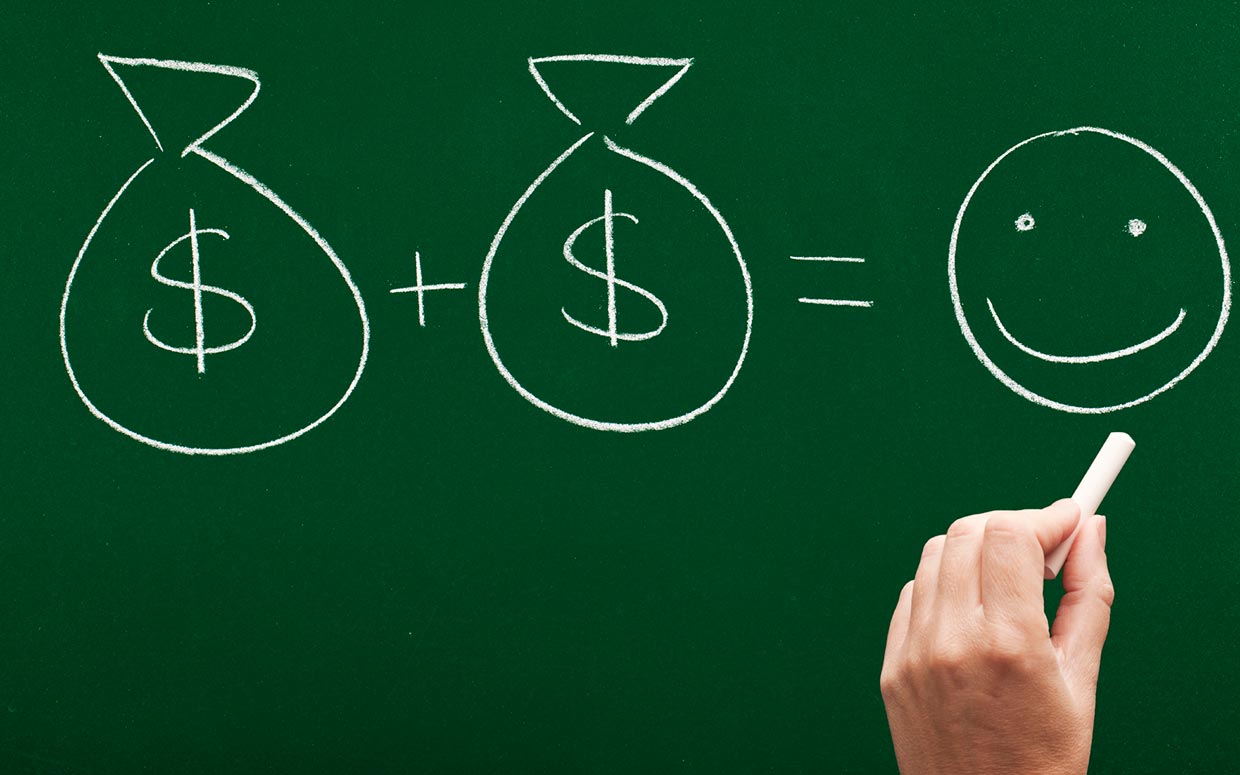Okay, so your Mum has always, always told you that money can simply not buy happiness. To an extent, this wise cautioning words of mom are both partially true and partially false. What a conundrum, right? Well it turns out that yes, money can in effect buy happiness, but usually only to a certain extent. That limiting factor caps out at about a seventy-five thousand dollars a year salary. But, you say, what about those making salaries larger than that number? Surely they must be happier with their millions and billions, right? Well, the answer to that is harder to explain. Here’s how money effects your happiness.
Having spawned many a research program, the age old question of “Does Money Buy Happiness” is vaguely open ended and broad. Some of the results of such studies have down both negative and positive answers from attempting to understand such a question. Some say yes, there is a direct relationship between income levels and levels of happiness. Others say no, there’s no connection and that money and happiness cannot simply be compared to one another, that they aren’t on equal playing fields. But still others have a more complicated answer, that yes, certain income levels can constitute happiness, but up to a certain point.
So what does this all mean for you? Well, it can be easily described in a logarithmic equation: the happiness value of the next dollar you earn is always worth less than the one you earned before it. Wow, deep, right?
But then, you also must consider what you are defining as happiness, because almost every person has a different definition of their kind of happiness. For some, happiness means good family and friends and a stable job, for others happiness lies in the material things that they have and own and some other people might say that happiness stems from life satisfaction. Happiness is a very fleeting thing, it comes and goes without any warning.
In one of the studies, scientists measured a certain definition of happiness in a group of people and found that their happiness levels fluctuated with changes in the economy. This suggests proof that yes, money can buy happiness otherwise those fluctuations shouldn’t have occurred. This kind of evidence was further supported when they took data during the recession. Happiness levels were down in tune with the low economic levels. These same scientists were then able to show that those who attain salaries of about seventy-five thousand a year are very happy, they feel stable. But anyone falling above or below that number, didn’t quite have the same levels of happiness. Which means that somewhere in the human psyche, we have determined an equilibrium for happiness and money. The rich are perhaps scared of losing their money, lowering their happiness and those below earning the seventy-five thousand are jealous that they can’t reach that perfectly happy number.
So the conclusion is, money can buy happiness… to an extent.



